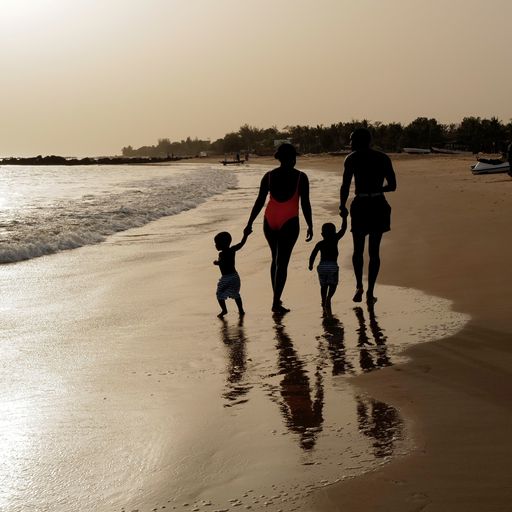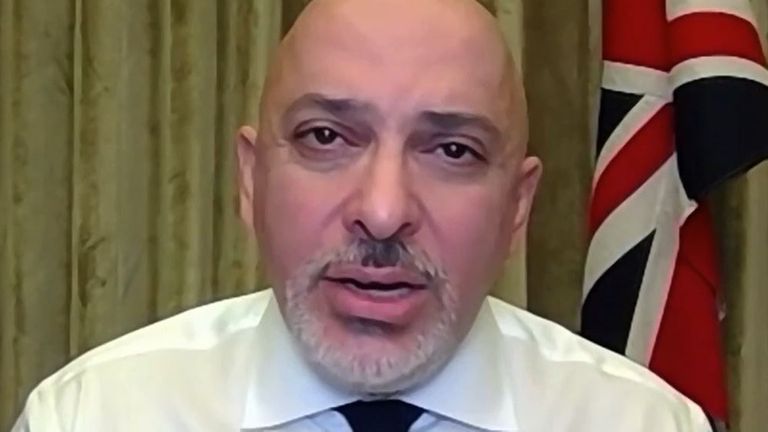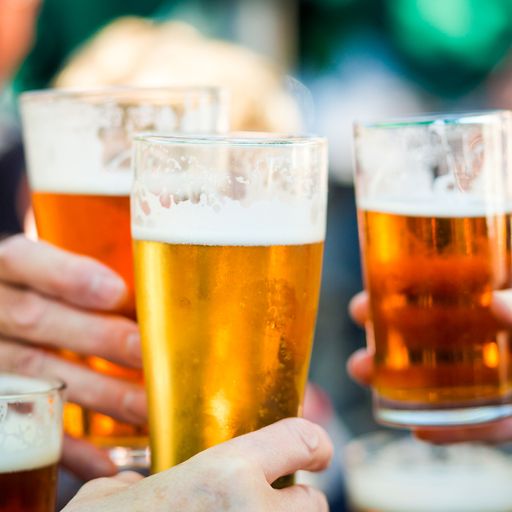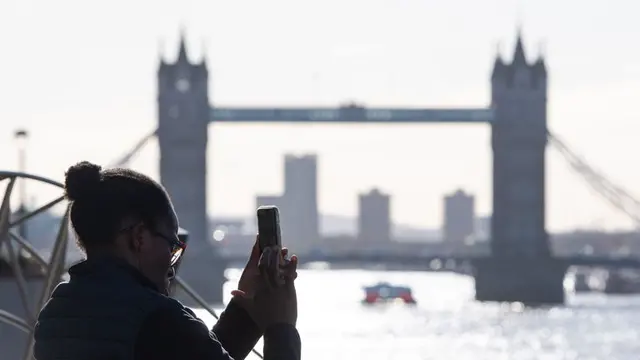It seems incongruous to talk about a third wave when the second is still so firmly on the way out.
Cases, hospital admissions and deaths are a fraction of what they were at their peak in January. The long lockdown and the rapid rollout of the vaccine have been highly effective.
But the daily stats give false reassurance - there is still a lot of virus out there.
Live COVID updates from the UK and around the world
One in every 370 people is infected. And the more we mix as lockdown is lifted, the greater the opportunity
the virus
has to spread.
The government's SAGE advisory committee warns cases are likely to rise following the re-opening of pubs, restaurants and retail on 12 April, and then surge as people are allowed to mix indoors in later steps of the government's "roadmap".
One modelling group at the London School of Hygiene and Tropical Medicine says a pessimistic, but realistic, scenario is for a third wave to peak at the end of July or in early August, with hospital admissions on the same scale as in January.
Even the optimistic scenarios point to a third wave, though the peak is lower and more drawn out, putting less pressure on the NHS.
**Subscribe to the Daily podcast on **
Apple Podcasts
**, Google Podcasts
, Spotify
, Spreaker
**
But the take home message from the SAGE assessment is that it is "highly likely" there will be another resurgence in hospitalisations and deaths.
The scientists' pessimism is based on the high number of people yet to be vaccinated and the incomplete protection of the vaccine.

When can you go on holiday abroad?
Please use Chrome browser for a more accessible video player

'It's responsible' to consider vaccine passports
Around 40% of adults are yet to have even one dose.
Even when the vaccine has been rolled out to all adults, which should be by the end of July, there will be significant numbers who choose not to have it or remain vulnerable to infection because they haven't developed an immune response.
Then add the several million children and adolescents under the age of 18 who aren't currently eligible to get the jab.
That's a lot of people who could spread the virus.

COVID-19 passports: What are they and how would they work?
These are only possible scenarios, and computer models are only as good as the data you enter. But more than a year into the pandemic scientists have a much better handle on the virus.
With several different models pointing to a third wave it doesn't look like we will have the summer of freedom we had all been hoping for.
 简体中文
简体中文

